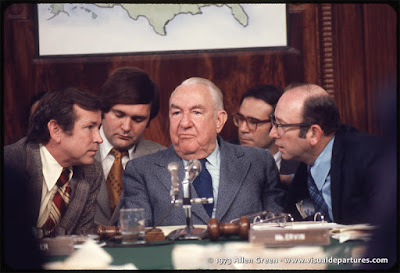by Nomad
As a Supreme Court Justice Antonin Scalia has been the most outspoken of all of the judges. His ultra-conservative views are one of the reasons what induced President Reagan to nominate him back in 1986. Increasingly, Scalia's public declarations have become more and more incautious and deceptive. Isn't it time for Scalia to step down?
About a week ago,
Supreme Court Justice Antonin Scalia made a speech at
Colorado Christian University. The speech deserves, I think, a closer look because a few of the things that were said should be a cause for concern.
The speech offered clear indisputable proof of Scalia's misrepresentation of the law, the lack of respect for the high court's decision, and even the role of the court itself.
Scalia's public pronouncements have, in short, become a serious threat to the authority of the judicial branch.
Fallacy about Secularism
In Colorado, Justice Scalia told his Christian audience:
“I think the main fight is to dissuade Americans from what the secularists are trying to persuade them to be true: that the separation of church and state means that the government cannot favor religion over nonreligion.
In fact, this is not the secularist position at all. It is not about government favoring religion over non-religion. Secularists may be just as religious as anybody else. Many of them, if not most, are just as religious as the average "Bible-thumper."
So to say this is a debate between the devout and the heathens, believers against non-believers is both insulting and wrong.
The secularist position is that religion is a personal matter. It belongs in churches or private institutions, but not in the halls of Congress or tax-payer funded schools and other public buildings.
It is simply not possible to represent all religions without making one take priority over any other. Some are even contradictory or otherwise in opposition to others, even within the same religion. There is no state religion and therefore, neutrality between religions is mandated by the Constitution. The government cannot impose any particular religious belief or practice upon its citizens.
Except at a personal level, say the secularists, religion and governance must be distinct from each other. Despite Scalia's remarks, it was never about non-religion.
Justice Scalia is, of course, well aware of these facts but is purposefully misleading the audience. He understands that there are radical religious groups who seek to remove the long-standing
separation of Church and State and he is offering them his ideological support.






